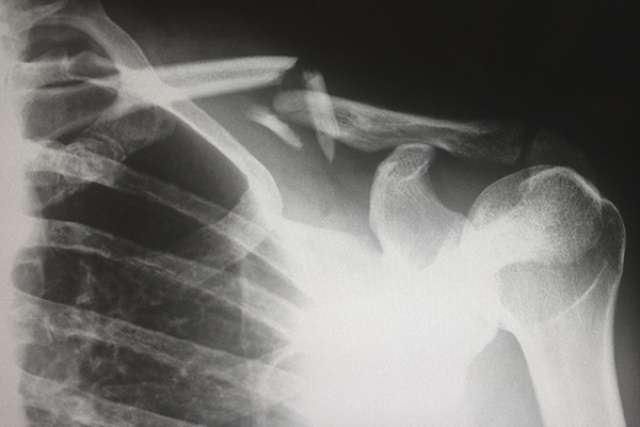FINDINGS
For postmenopausal women who have undergone an initial bone mineral density test, having a standard second assessment three years after the first does not improve physicians' ability to determine their risk of osteoporosis-related hip, spine, forearm and shoulder fractures, a study has found.
In addition, the study authors say, the initial test is more predictive of fracture risk than the second test, regardless of race, ethnicity and age.
BACKGROUND
Physicians routinely perform a follow-up bone density tests in postmenopausal women approximately three years after the first test to detect any loss in bone mass and thus gauge patients' risk of bone fractures in subsequent years.
METHOD
The researchers used data collected from more than 7,000 postmenopausal women between the ages 50 and 79 years from across the U.S. who were followed for nine years as part of the Women's Health Initiative, a long-term health study sponsored by the National Heart, Lung, and Blood Institute.
The participants underwent bone mineral density measurements at baseline and again approximately three years later. Following the second measurement, participants provided information regarding whether they had experienced major osteoporosis-related fractures.
IMPACT
Because bone mineral density testing three years after baseline testing does not predict a postmenopausal woman's risk for bone fractures, it should not be routinely performed, as has been the standard practice.
AUTHORS
Dr. Carolyn Crandall (UCLA), Joseph Larson (Fred Hutchinson Cancer Research Center, Seattle), Nicole Wright (University of Alabama, Birmingham), Deepika Laddu (University of Illinois, Chicago), Marcia Stefanik (Stanford University), Dr. Andrew Kaunitz (University of Florida), Dr. Nelson Watts (Mercy Health Osteoporosis and Bone Health Services, Cincinnati), Jean Wactawski-Wende (State University of New York, Buffalo), Dr. Catherine Womack and Dr. Karen Johnson (University of Tennessee), Dr. Laura Carbone (Augusta University), Dr. Rebecca Jackson (Ohio State University), and Dr. Kristine Ensrud (University of Minnesota).
JOURNAL
The study is published in the peer-reviewed journal JAMA Internal Medicine.
FUNDING
The National Institutes of Health's National Heart, Lung and Blood Institute funded the Women's Health Initiative.



